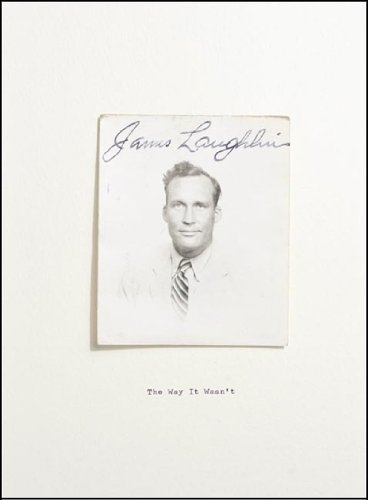What do you think?
Rate this book


288 pages, Paperback
First published July 6, 2006
Every writer has a tale of conversion – “the book that made me want to become a writer” – and for nearly every writer I know, that one book was published by Laughlin...I belong to the last generation to come of age before the tidal wave of the overproduction of everything, and in my adolescence, the black and white photographic covers of ND books were unmistakable on the shelves. I would buy any one of them at random, knowing that if Laughlin published it, it was something that had to be read, the latest oracle from the Temple of the Modern, the place where one went to feel alive in the present.
(Eliot Weinberger)
…it was an awful place, smelling of formaldehyde. There was this little old guy trundling corpses around on gurneys. He would pull a rubber sheet back and ask, “Is this him?” “No.” “Is this him?” “No.” Finally we found him. He looked awful, all puffy and purple. “Yeah, that’s him.” And he said, “Well, you go over there to the window and identify him.” In the window was a little girl. She was about four feet high, and I don’t think she had even finished high school yet. She filled out the forms – she couldn’t spell Dylan so I spelled it out for her. “What was his profession?” “He was a poet.” That puzzled her. This little girl said, “What’s a poet?” “He wrote poetry.” So that is what the form says: “Dylan Thomas. He wrote poetry.”